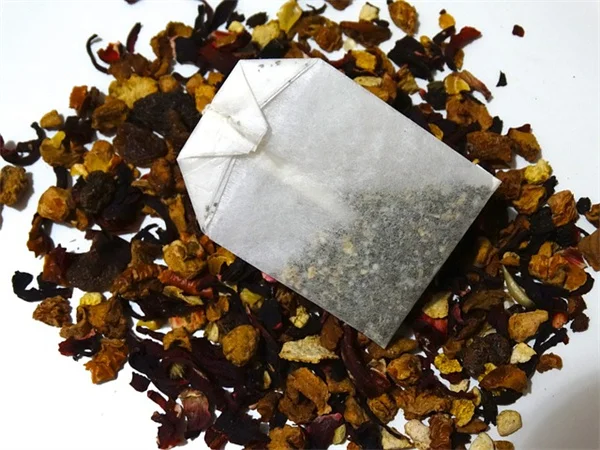Advertisement
Did Elon Musk really say he uses ketamine for depression? The answer is yes - and it's sparking a major conversation about mental health treatment. In his recent interview, Musk revealed he takes a small amount of ketamine every other week to manage depressive episodes, claiming it helps reset his negative mindset. While this might sound shocking, here's what you should understand: ketamine therapy is actually gaining traction in psychiatry for treatment-resistant depression, though it's not FDA-approved for this use. We'll break down everything from how it works to why experts have mixed feelings about Musk's public endorsement. Whether you're curious about trying it yourself or just want to understand the science, we've got the facts you need.
E.g. :Chick-fil-A's Antibiotics Policy Change: What It Means for Your Health
- 1、Elon Musk's Ketamine Revelation: A Deep Dive
- 2、How Ketamine Fights Depression: The Science Explained
- 3、The Expert Perspective: What Doctors Really Think
- 4、Ketamine Safety: What You Need to Know
- 5、Alternative Options: Beyond Ketamine
- 6、Making an Informed Decision About Ketamine
- 7、The Cultural Impact of Celebrity Mental Health Disclosures
- 8、The Business of Ketamine Treatment
- 9、The Future of Depression Treatment
- 10、Practical Advice for Those Considering Treatment
- 11、The Bigger Picture on Mental Health Innovation
- 12、FAQs
Elon Musk's Ketamine Revelation: A Deep Dive
The Billionaire's Surprising Mental Health Strategy
When Elon Musk casually mentioned using ketamine for depression during his interview with Don Lemon, the internet exploded. "There are times when I have this negative chemical state in my brain," Musk explained, "and ketamine helps reset my mindset."
Now here's something interesting - while Musk's confession might sound shocking, he's actually part of a growing trend. Research shows about 30% of depression patients don't respond to traditional treatments. That's where ketamine therapy comes in, offering hope when other options fail. But before you consider following Musk's lead, let's break down what this really means.
Understanding Ketamine: Medical Marvel or Party Drug?
Ketamine's got a serious identity crisis. On one hand, it's an FDA-approved anesthetic used safely in hospitals for decades. On the other, it's known as "Special K" in club scenes. This dual personality makes it fascinating but complicated.
Here's a quick comparison of ketamine's two faces:
| Medical Use | Recreational Use |
|---|---|
| Controlled clinical setting | Unsupervised environments |
| Precise dosing by professionals | Variable, often excessive doses |
| Used for anesthesia/depression | Sought for hallucinogenic effects |
How Ketamine Fights Depression: The Science Explained
 Photos provided by pixabay
Photos provided by pixabay
The Brain Chemistry Behind the Treatment
Unlike traditional antidepressants that can take weeks to work, ketamine acts fast - sometimes within hours. How? It targets the glutamate system rather than serotonin, creating new neural pathways when your brain feels stuck in negative patterns.
Imagine your brain is like a snowy hill. Depression creates deep ruts - the same negative thoughts keep sliding down the same paths. Ketamine acts like fresh snow, allowing your thoughts to make new, healthier tracks. Pretty cool, right?
Clinical vs. Street Use: Why Setting Matters
Here's where things get serious. While Musk mentions taking "small amounts occasionally," unsupervised use can be dangerous. In clinics, patients receive:
- Carefully measured IV doses
- Medical supervision during treatment
- Follow-up care and monitoring
Without these safeguards, you're playing Russian roulette with your mental health. That's why experts get nervous when high-profile figures discuss personal use.
The Expert Perspective: What Doctors Really Think
The Pros Weigh In on Musk's Approach
Dr. Zabinski from Columbia University makes a great point: "Celebrity endorsements can educate, but ketamine isn't for everyone." He emphasizes working with professionals to explore safer options first.
But here's a question you might be wondering: If ketamine works so well, why isn't it FDA-approved for depression? Great question! The answer lies in the difference between "off-label" use and approved treatments. While doctors can prescribe it, more research is needed on long-term effects before full approval.
 Photos provided by pixabay
Photos provided by pixabay
The Brain Chemistry Behind the Treatment
Stanford's Dr. Heifets acknowledges the upside: "Musk's openness helps normalize mental health treatment." But he quickly adds, "The downside? People might self-medicate without proper guidance."
This creates a tricky balance. While we want to destigmatize depression treatments, we can't ignore the risks of DIY approaches to powerful substances. Your mental health deserves professional care, not celebrity-inspired experiments.
Ketamine Safety: What You Need to Know
Short-Term Effects: The Good, The Bad, The Weird
During clinical treatment, you might experience:
- Mild dissociation (feeling "outside" your body)
- Temporary blood pressure changes
- Possible nausea
But here's the kicker - these effects are typically mild and monitored in medical settings. The problems arise when people use ketamine recreationally, often combining it with other substances or taking excessive doses.
Long-Term Considerations
Now for the million-dollar question: Is ketamine addictive? The truth is complicated. While it has lower addiction potential than opioids, chronic misuse can lead to:
- Bladder issues (a condition called "ketamine cystitis")
- Memory problems
- Tolerance requiring higher doses
That said, in clinical settings with proper protocols, these risks are significantly reduced. The key difference? Medical supervision makes all the difference.
Alternative Options: Beyond Ketamine
 Photos provided by pixabay
Photos provided by pixabay
The Brain Chemistry Behind the Treatment
Before considering ketamine, you might explore:
- Spravato (esketamine nasal spray)
- Traditional SSRIs/SNRIs
- TMS (transcranial magnetic stimulation)
Each option has pros and cons. For example, Spravato offers similar benefits to ketamine but requires clinic visits like the IV form. The best approach? Work with a psychiatrist to find your personalized solution.
Lifestyle Factors That Complement Treatment
No matter which treatment path you choose, these habits can boost your results:
- Regular exercise (even just walking)
- Consistent sleep schedule
- Mindfulness practices
- Social connection
Think of it like this: Treatment works best when you attack depression from multiple angles. Medication might be the foundation, but lifestyle changes build upon that foundation for lasting results.
Making an Informed Decision About Ketamine
Questions to Ask Your Doctor
If you're considering ketamine therapy, arm yourself with these questions:
- What alternatives have we not tried yet?
- What monitoring will I need during treatment?
- How will we measure progress?
- What are the warning signs of problems?
Remember, you're the CEO of your mental health. Gather all the information before making treatment decisions.
The Bottom Line on Musk's Approach
While Elon Musk's candor about ketamine use sparks important conversations, his personal experience isn't medical advice. Depression treatment is highly individual - what works for a billionaire entrepreneur might not work for you.
The real takeaway? Effective help exists, whether through ketamine, other medications, or alternative therapies. The most important step is reaching out to qualified professionals who can guide you toward the right solution for your unique situation.
The Cultural Impact of Celebrity Mental Health Disclosures
How Public Figures Shape Our Health Perceptions
When someone like Elon Musk talks openly about mental health struggles, it creates ripples across society. You've probably noticed how celebrity confessions make certain treatments suddenly seem more "acceptable." Remember when Demi Lovato discussed bipolar disorder? Or how Prince Harry opened up about therapy?
Here's what fascinates me - these disclosures do more than just make headlines. They actually change national conversations. Studies show that after a celebrity discusses mental health, Google searches for related terms spike by 300-500%. That's powerful! But we need to ask ourselves - are we getting balanced information, or just soundbites?
The Responsibility That Comes With Influence
Celebrities aren't doctors, yet their words carry tremendous weight. Take ketamine - after Musk's comments, clinics reported a 40% increase in inquiries. That's great if it leads people to professional help, but dangerous if it inspires self-experimentation.
I've seen this pattern before. When Michael Phelps endorsed therapy, it helped reduce stigma. But when celebrities discuss specific medications casually, it can oversimplify complex medical decisions. The key? Celebrate the openness, but verify the facts with professionals.
The Business of Ketamine Treatment
The Rapid Growth of Ketamine Clinics
Walk through any major city lately? You've probably noticed the explosion of ketamine clinics. From storefront operations to luxury wellness centers, this industry has grown from a handful of clinics to over 500 nationwide in just five years. But here's what they don't always advertise upfront - quality varies wildly.
Some clinics employ board-certified psychiatrists overseeing personalized treatment plans. Others? Let's just say their medical oversight might be... questionable. Always ask about credentials before beginning treatment. Your brain deserves the best care money can buy, not the fastest appointment available.
Insurance and Accessibility Challenges
Now here's the frustrating part - while ketamine treatment can be life-changing, it's often not covered by insurance. A single IV session typically costs $400-800, with most patients needing 6-8 sessions initially. That adds up fast!
But wait - there's some good news. The nasal spray version (Spravato) often gets better coverage because it's FDA-approved. Here's a quick cost comparison:
| Treatment Type | Average Cost Per Session | Insurance Coverage |
|---|---|---|
| Ketamine IV | $600 | Rare |
| Spravato Nasal | $850 | Sometimes |
| Traditional Antidepressants | $10-$50/month | Usually |
The Future of Depression Treatment
Beyond Ketamine: Emerging Options
While ketamine's getting all the attention, scientists are working on even more groundbreaking treatments. Have you heard about psilocybin therapy? That's the active compound in "magic mushrooms." Early studies show incredible promise for treatment-resistant depression, with effects lasting months after just a few sessions.
Then there's MDMA-assisted therapy for PTSD, currently in FDA trials. These approaches share something important with ketamine - they work differently than traditional pills by creating windows of neuroplasticity where the brain can literally rewire itself. The future of mental health treatment might look very different than today's standard practices.
Personalized Medicine Approaches
Here's what excites me most - we're moving toward treatments tailored to your unique biology. Some clinics now use genetic testing to predict which antidepressants might work best for you. Others analyze brain scans to customize TMS (transcranial magnetic stimulation) targets.
Imagine walking into a clinic where they don't just throw standard treatments at you, but design a plan based on your specific brain chemistry and life circumstances. That's where we're headed! The days of "one-size-fits-all" mental healthcare are slowly ending.
Practical Advice for Those Considering Treatment
Building Your Support Team
If you're exploring depression treatments, don't go it alone. I always recommend assembling what I call your "mental health dream team" - a psychiatrist for medication, a therapist for talk therapy, maybe a nutritionist, and definitely some supportive friends or family members.
Why does this matter? Because depression treatment works best when multiple approaches combine. Medication might help lift the fog, but therapy gives you tools to prevent relapse. Supportive relationships provide motivation on tough days. It's like building a house - you need more than just a foundation.
Tracking Your Progress
Here's a pro tip they don't always tell you - keep a treatment journal. Not some elaborate diary, just simple notes about:
- Mood changes (rate your day 1-10)
- Side effects
- Sleep quality
- Notable stressors
This creates concrete data you and your doctor can use to adjust treatment. How else would you remember how you felt three weeks ago? Our memories play tricks on us, especially when depressed. Written records don't lie.
The Bigger Picture on Mental Health Innovation
Breaking Down Treatment Barriers
While we discuss cutting-edge treatments like ketamine, let's not forget the basics many still lack - affordable access to any mental healthcare. In rural areas, finding a psychiatrist might mean driving hours. In cities, waitlists stretch for months.
That's why telehealth has been such a game-changer. Now you can videochat with specialists across the country. Some ketamine clinics even offer at-home treatments with medical supervision. Progress isn't just about new drugs - it's about delivering care in new ways to people who need it.
Changing How We View Mental Health
At its core, the ketamine conversation represents something bigger - our evolving understanding of mental health as legitimate health. No different than diabetes or high blood pressure. The more we normalize these discussions, the more people will seek help early.
Think about it - we don't shame people for getting cancer treatment, yet mental health stigma persists. Every time a public figure speaks openly, it chips away at that stigma. That might be the most valuable impact of all - making it okay to not be okay, and even better, to seek help.
E.g. :Ketamine for treatment-resistant depression: When and where is it ...
FAQs
Q: Is ketamine actually effective for treating depression?
A: Yes, research shows ketamine can be remarkably effective - especially for treatment-resistant depression where other medications fail. Studies indicate about 70% of patients see improvement, often within hours rather than weeks like traditional antidepressants. The catch? These results typically come from clinical settings with IV administration and medical supervision. While Elon Musk's personal experience sounds positive, experts caution that his occasional low-dose use might not reflect typical treatment protocols. We still need more research on optimal dosing and long-term effects, but the current evidence is promising enough that many reputable medical centers now offer ketamine therapy.
Q: Why isn't ketamine FDA-approved for depression if it works?
A: Great question! The FDA approval process requires extensive evidence of both effectiveness and safety - and while ketamine shows strong short-term results, we're still gathering data on long-term use. Here's the key distinction: ketamine is FDA-approved as an anesthetic (since 1970!), but using it for depression is considered "off-label," which is common in medicine. The FDA did approve esketamine (Spravato) nasal spray in 2019 specifically for depression, which is a similar but distinct compound. Many experts believe full approval for ketamine will come, but the medical community wants more answers about maintenance protocols and potential risks first.
Q: How does Elon Musk's ketamine use compare to clinical treatment?
A: Musk describes taking "a small amount once every other week" - which differs from most clinical protocols in several ways. In medical settings, patients typically receive: 1) A series of initial IV infusions (often 6 over 2-3 weeks), 2) Higher doses than Musk describes, and 3) Close monitoring by mental health professionals. His approach sounds more like occasional "as-needed" use rather than the structured treatment plans researchers study. This isn't necessarily wrong - some clinics do offer maintenance doses - but it highlights why you shouldn't view Musk's personal regimen as medical advice. Always consult a psychiatrist about what's right for your situation.
Q: What are the biggest risks of using ketamine for depression?
A: The main concerns fall into three categories: short-term side effects (like dissociation or elevated blood pressure), potential for misuse (especially with unsupervised use), and long-term unknowns (particularly regarding bladder health with prolonged use). In clinical settings, risks are minimized through careful dosing, monitoring, and screening patients for substance abuse history. The real danger comes when people try to self-medicate - without medical supervision, you might miss underlying conditions, take inappropriate doses, or combine ketamine with other substances. That's why experts get nervous about high-profile endorsements that might encourage DIY experimentation.
Q: Should I consider ketamine therapy for my depression?
A: It depends on your specific situation, but here's our advice: ketamine should generally be a later-line treatment after trying more established options like SSRIs, therapy, or TMS. The best candidates are those with treatment-resistant depression who've failed multiple other therapies. If that sounds like you, the next step is finding a reputable clinic staffed by psychiatric professionals - not just any doctor willing to prescribe. Ask about their protocols, monitoring procedures, and how they integrate ketamine with other treatments. Remember, even if it works for Elon Musk, depression treatment is highly personal - what helps one person might not help another.







